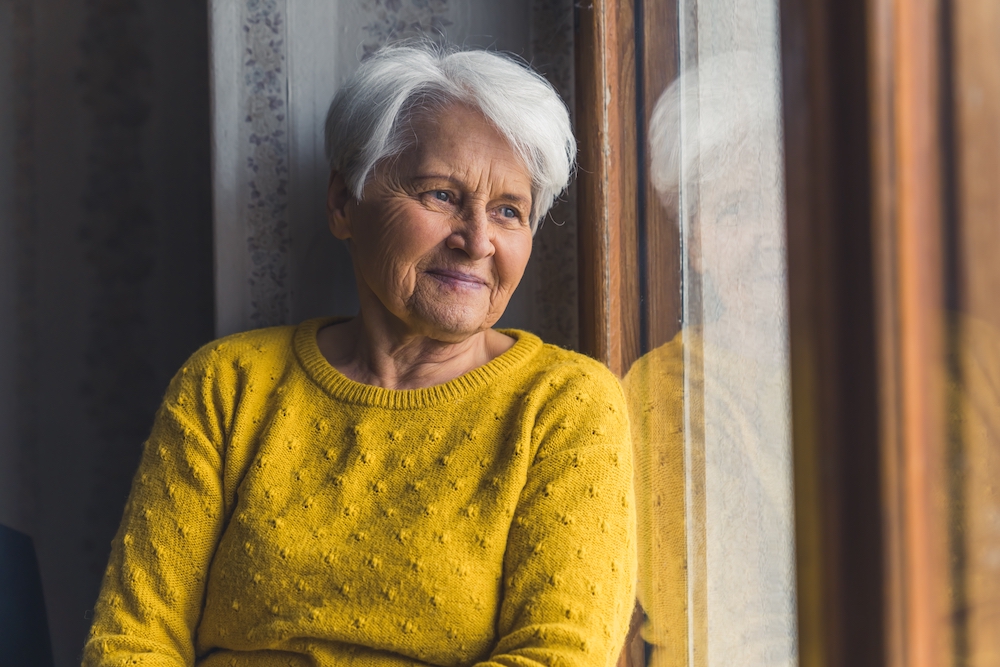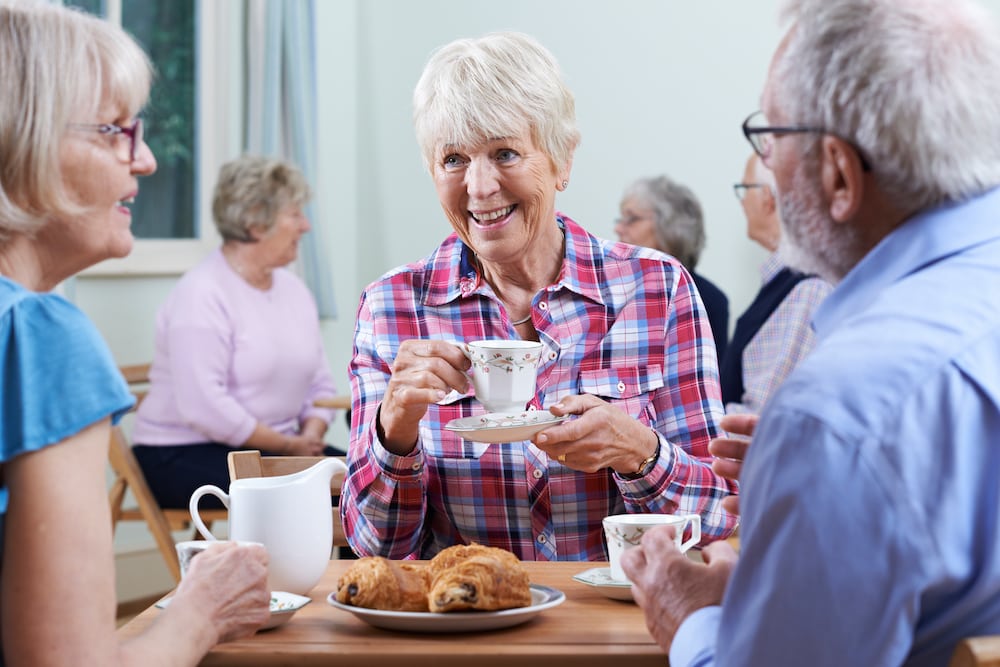
There are many benefits to caregiving in addition to the emotional, and physical support seniors receive. However, it is important that caregivers take time to understand what their loved one needs and help them maintain their independence as they age. This is possible even if your senior loved one lives in a retirement community, too.
When caring for a senior, here are 8 ways caregivers can help seniors maintain their independence:
1.) Focusing on Senior Nutrition
An older person who eats a proper diet can face a lot less joint pain and can develop greater bone density, leading to a healthier body. Because seniors do not eat as much as younger people, it is important to ensure they eat a healthy diet and are not underweight. A good diet includes lean proteins such as fish or chicken, as well as fresh foods like fruits and vegetables.
Seniors who have difficulty chewing may be encouraged to use wheat thins or multi-grain crackers as alternatives to chips. While seniors may not want to eat every single meal they eat with others, they can still encourage them to join them for a meal or two per week.
2.) Making Peace with Technology
While it is counterintuitive, many older adults are more comfortable using new technology than younger people are. Some of the experiences that make older adults lose their sense of independence include:
- Losing their vision, which opens up new possibilities.
- Being unable to drive leads to a new way of thinking about transportation options.
- Having difficulty with crossing streets in large cities without the use of a cane. If a senior is no longer able to cross the street alone, they will be more comfortable if they have access to self-driving vehicles.
Turning their back on technology is a big mistake since it helps seniors maintain their independence. On the contrary, technology can also help them in a variety of ways:
- Automated pilots in cars can ensure seniors remain safe and protected.
- The internet allows them to stay connected to family and friends.
- It allows them to use voice commands that allow them to make phone calls from anywhere they are.
3.) Using Some Humor
It is important to remember that seniors are sensitive to their reputation and dignity. They want to maintain the image they built for themselves and will often go out of their way to make sure others still see them as the kind of person they’ve always been. This means they do not like it when someone laughs at them or makes fun of them.
Seniors want to know that their caregivers will respect them. Humor is something that can help both parties feel closer and more comfortable around each other. Humor does not have to be age-appropriate. For example, younger people might tell a joke about zombies, while older people might tell a joke from their younger days.
4.) Assisting With Activities of Daily Living
While many seniors fear a loss of independence, they also fear losing their dignity and identity. Taking care of a senior is not about making them dependent on you. It is about helping them preserve their dignity and their self-identity.
Things like bathing, dressing, and grooming are essential for preserving dignity and independence. Assisting with these activities of daily living can help your loved one maintain their independence:
- Assist with bathing by helping them get into the bathtub and then giving them 10 minutes to do what they need to do on their own.
- Help them with dressing by making sure they have shoes on and are wearing a warm coat.
- Assist with grooming by helping them get a comb and brush, brush their teeth, and put on their makeup.
5.) Encouraging Socialization
Keeping seniors company benefits both the senior’s health and well-being, but Socialization also helps the caregiver learn how to interact more comfortably with others. It can help create opportunities for friendships and provide added ways to develop new relationships in a person’s life. It can also improve a person’s mood.
Socializing offers important benefits to caregivers. It helps them become more comfortable with others, and it helps the seniors retain their identity and dignity as well. If you are worried about the transition of caring for a loved one, taking care of them socially can help ease that pain.

6.) Exercise and Other Activities to Keep Up Senior Physical Health
Seniors who are able to get active day in and day out can benefit from a number of things, including exercise. However, working out with seniors can be more challenging than it is for young people. It is important to take into account the limitations that older adults have and offer opportunities to be physically active rather than pushing them too hard.
While there are many different activities offered to seniors, some of the best options include hiking, jogging, swimming, and biking. These are all great opportunities for seniors to get fresh air, feel the sun on their faces, and enjoy the freedom of movement.
7.) Medication Monitoring
Older adults are more likely than younger people to take prescription medications. This can be particularly dangerous if a senior forgets to take their medicine at the right time or they take more than they should. As such, it is important to know how to properly monitor the medications that are being taken by an older adult.
A number of medications can cause a person to become drowsy, which decreases their alertness and makes them more susceptible to accidents. Seniors can also become more confused and forgetful. This is particularly important for caregivers to know because it can help them better understand the behaviors being displayed by their loved one.
8.) Giving the Right Amount of Attention
Seniors are naturally more suspicious of things that they do not know well. When approaching an older adult, it is important to consider the situation carefully and figure out what they are most comfortable with. When you are able to read the situation correctly, you can better understand how to approach a senior in the best way possible.
Conclusion
Seniors who maintain their independence and self-identity are able to enjoy a better quality of life. As a caregiver, you should strive to help your loved one maintain their dignity and sense of identity as they age. Assisting them with activities from brushing teeth to bathing can ensure that seniors retain the independence they need to live happy lives.